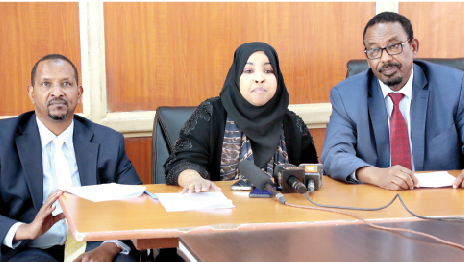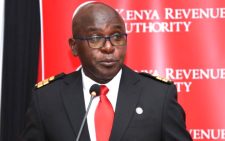You’ve neglected refugee host areas, leaders tell UN

Members of Parliament (MPs) from northern Kenya have accused the United Nations High Commissioner for Refugees (UNHCR) of taking advantage of their magnanimity for hosting refugees in a fragile ecosystem that has left the area completely degraded.
MPs Farah Maalim (Dadaab), Salah Yakub (Fafi), Dekow Barroa (Garissa Township) Udgoon Siyad (Garissa Woman Rep) regretted that UNHRC has not provided any support to deal with environmental matters which has been degraded by refugees in search of fuelwood.
The lawmakers from the region also accused the Immigration department of leaving out refugees in employment whenever such positions appear.
Huge trucks
Led by Maalim, the MPs claimed that the inaction by the UN Refugee Agency has occasioned refugees to rely on firewood fetched from over 100km from the camps for energy.
Said Maalim: “We find it bizarre that a UN Agency that ought to espouse the highest standards of international environmental principles operates with wanton disregard to the refugee hosting areas. It baffles me that Dadaab is the only refugee camp in the World where refugees use firewood as their source of energy.”
Addressing a news conference at Parliament Buildings, Maalim regretted that the UN World Food Programme (UNWFP), that has been using huge trucks to transport goods to Dadaab has completely destroyed the road network, a move that has led to the area being cut off from road transport.
“Despite decade-long calls for tarmacking the Dadaab- Garissa Road in order to sustainably address the perennial road network problem, WFP has not offered to undertake the most minor road works, instead they have worked towards exacerbating an already bad situation by putting huge and overloaded trucks on the poorly maintained roads.”
Barrow said it is sad that during these trying times when the region is facing flash floods occasioned by onset of El Nino rains, UNHCR which is the lead agency within the Dadaab Refugee Camp complex hasn’t found it necessary to initiate an emergency response programme to the Refugee hosting communities of Fafi and Dadaab.
He said: “We find it utterly unconscionable that UNHCR hasn’t found it appropriate to trigger an emergency response to alleviate the loss of lives and livelihoods for the refugee hosting areas. We, therefore, urge the UNHCR that in good conscience, they should immediately initiate emergency response mechanisms to forestall imminent losses occasioned by the prevailing El Nino phenomenon.
On hiring, they demanded that the government halt the ongoing plans to integrate refugees under the Shirika Plan citing discrimination and mismanagement.
They claimed that the Shirika Plan being spearheaded by the Department of Refugee Affairs and the UNHCR is being undertaken without any form of engagement with local leaders and communities terming it a violation of the constitution.
Public participation
The five-year transition plan, dubbed the Shirika Plan, aims to transform the refugee camps into integrated settlements for both refugees and host communities, with a view to making refugees self-reliant and contributing to the economy.
Said Maalim: “That the Ushirika Plan currently being spearheaded by the Department of Refugee Affairs and the UNHCR is being undertaken without any form of public participation and engagement with the political leadership, local civil society organisations, the refugees hosting community and all other critical stakeholders as provided under Article 10 of the Kenya Constitution (2010).”












